Vilnius Gediminas Technical University is an important institution of higher learning in Lithuania. The following is a detailed introduction to the school:
Introduction and Overview
Vilnius Gediminas Technical University is a public university in Vilnius, the capital of Lithuania. It is one of the leading technical universities in the Baltic region. It provides high-quality education and research in the fields of engineering, technology and natural sciences, and has trained many professional and technical talents, making important contributions to the development of science and technology and economic construction in Lithuania.
History and Establishment Time
The school was founded in 1956. It was formerly known as the Vilnius Institute of Technology. After years of development and change, it has gradually become a comprehensive technical university.
School Strength
Faculty: It has a team of highly qualified teachers, including many experts and professors with rich teaching and research experience in engineering, technology and natural sciences. They not only have profound professional knowledge, but also can integrate cutting-edge scientific research results into teaching, providing students with high-quality education and guidance.
Teaching resources: The school is equipped with advanced teaching facilities and laboratories, providing good conditions for students' learning and practice. For example, in the field of engineering, there are modern engineering laboratories, computer-aided design and manufacturing laboratories, etc., so that students can personally experience and operate advanced engineering technology equipment, and improve their practical and innovative abilities. In addition, the school's library has a rich collection of books, covering professional books, academic journals and research reports in multiple disciplines such as engineering, technology, and natural sciences, providing sufficient material support for students' learning and research.
Scientific research results: Remarkable achievements have been made in scientific research, especially in the fields of engineering technology, computer science, and materials science. The school's scientific research projects have been funded and supported by many institutions at home and abroad. The research results have had a certain influence in related fields and have made positive contributions to promoting scientific and technological progress and social development. For example, in the research of the energy field, the school's scientific research team is committed to the development and utilization of renewable energy, has achieved some important scientific research results, and provided technical support for Lithuania's energy transformation.
International cooperation: Actively carry out international cooperation and exchanges, and establish cooperative relations with universities and scientific research institutions in many countries around the world. Through student exchange programs, teacher visits, joint scientific research and other forms, academic exchanges and cultural integration have been promoted, and the school's international reputation and influence have been improved. Students have the opportunity to exchange and study at foreign partner institutions, broaden their international horizons and enhance their international competitiveness.
Nature of the institution
Public university.
Educational philosophy
Focus on cultivating students' practical ability and innovative spirit, emphasizing the combination of theory and practice, so that students can master solid professional theoretical knowledge and have the ability to solve practical engineering problems and innovative thinking ability to adapt to the rapidly developing science and technology and social needs.
Advocate interdisciplinary education and research, encourage students to break disciplinary boundaries, learn and integrate knowledge and methods of different disciplines, cultivate students' comprehensive literacy and interdisciplinary problem-solving ability, and lay the foundation for students to engage in complex engineering technology and scientific research in the future.
Emphasize the internationalization of education, cultivate students' international vision and cross-cultural communication ability, so that students can better adapt to international competition and cooperation in the context of globalization.
Key laboratories and disciplines
Key disciplines: Mechanical engineering, electrical engineering, computer science, civil engineering, chemical and biological engineering, architecture and other disciplines are the school's advantageous disciplines. These disciplines have a high level in teaching and scientific research, and have a group of excellent teachers and scientific research teams, providing students with high-quality educational resources and research platforms. For example, the discipline of mechanical engineering has in-depth research and teaching practice in the fields of mechanical manufacturing, mechanical design, and robotics; the discipline of computer science has achieved many results in artificial intelligence, software development, and network technology.
Key laboratories: The school has a number of key laboratories, such as the Laser Technology Research Center, the Intelligent Building and Energy Efficiency Laboratory, and the Materials Science and Engineering Laboratory. These laboratories are equipped with advanced instruments and experimental facilities, which provide strong support for the scientific research work of related disciplines and provide important places for students' practical teaching and scientific research innovation. For example, the Laser Technology Research Center has carried out research in laser processing, laser measurement, laser communication, etc., and has achieved a series of important scientific research results, and has provided technical support and cooperation opportunities for related enterprises.
Department Settings
The school has a number of departments, including the Department of Civil Engineering and Architecture, the Department of Mechanical Engineering and Design, the Department of Electrical Engineering and Electronics, the Department of Computer Science, the Department of Chemistry and Bioengineering, etc. Each department has multiple professional directions, covering different levels of education from undergraduate to doctoral, providing students with a comprehensive range of professional choices and learning paths.
Ranking
Not ranked in the top 1000 in the 2024 QS World University Rankings.
Cost
Tuition fees: Tuition fees for undergraduate and master's programs vary depending on the major. Generally, undergraduate tuition fees are around 2300-4000 euros per year, and master's tuition fees are around 2500-4500 euros per year.
Living expenses: Monthly living expenses are around 500-800 euros, including accommodation, food, transportation, daily necessities and other expenses. Of course, the specific expenses will vary depending on personal lifestyle and consumption habits.
Campus
Campus location: Located in Vilnius, the capital of Lithuania, Vilnius is the political, economic and cultural center of Lithuania with a long history and rich cultural heritage. The campus is surrounded by convenient transportation and complete living facilities, including supermarkets, restaurants, cafes, banks, etc., which provide convenient conditions for students' study and life.
Campus facilities: The campus has complete teaching and living facilities, including modern teaching buildings, libraries, laboratories, gymnasiums, student dormitories, canteens, etc. The teaching building is equipped with advanced teaching equipment, such as multimedia classrooms, computer laboratories, etc., providing students with a good learning environment. The library has a rich collection of books and a strong learning atmosphere, and is an important place for students to study and research. The gymnasium is equipped with various sports facilities, such as basketball courts, badminton courts, gyms, etc., to meet students' physical exercise needs. The student dormitories are in good conditions and provide a safe and comfortable accommodation environment. There are different types of dormitories such as single rooms and double rooms to choose from. The canteen provides a rich variety of food options to meet the taste needs of different students.
-
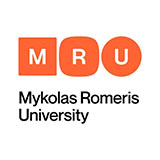
Mykolas Romeris University
-

LCC International University
-
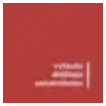
Vytautas Magnus University
-
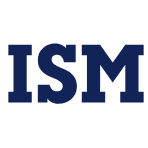
ISM University of Management and Economics
-
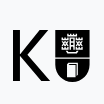
Klaipeda University
-
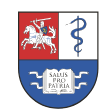
Lithuanian University of Health Sciences
-
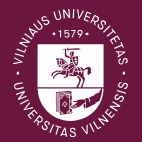
Vilnius University
-

Vilnius Gediminas Technical University
-
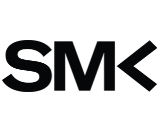
SMK College of Applied Sciences
-
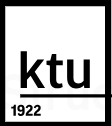
Kaunas University of Technology
-

Mesoamerican University
-

Istmo University
-

Mariano Galvez University of Guatemala
-

Regional University of Guatemala
-

Galileo University
-

Francisco Marroquín University
-

Rafael Landívar University
-

University of the Valley of Guatemala
-

University of San Carlos of Guatemala
-

Technological Institute of Tlaxcala Plateau
-

Golfo University
-

Technological University of South Sonora
-

Technological University of Huejotzingo
-

Tizimín Institute of Technology
-

Chilpancingo Institute of Technology
